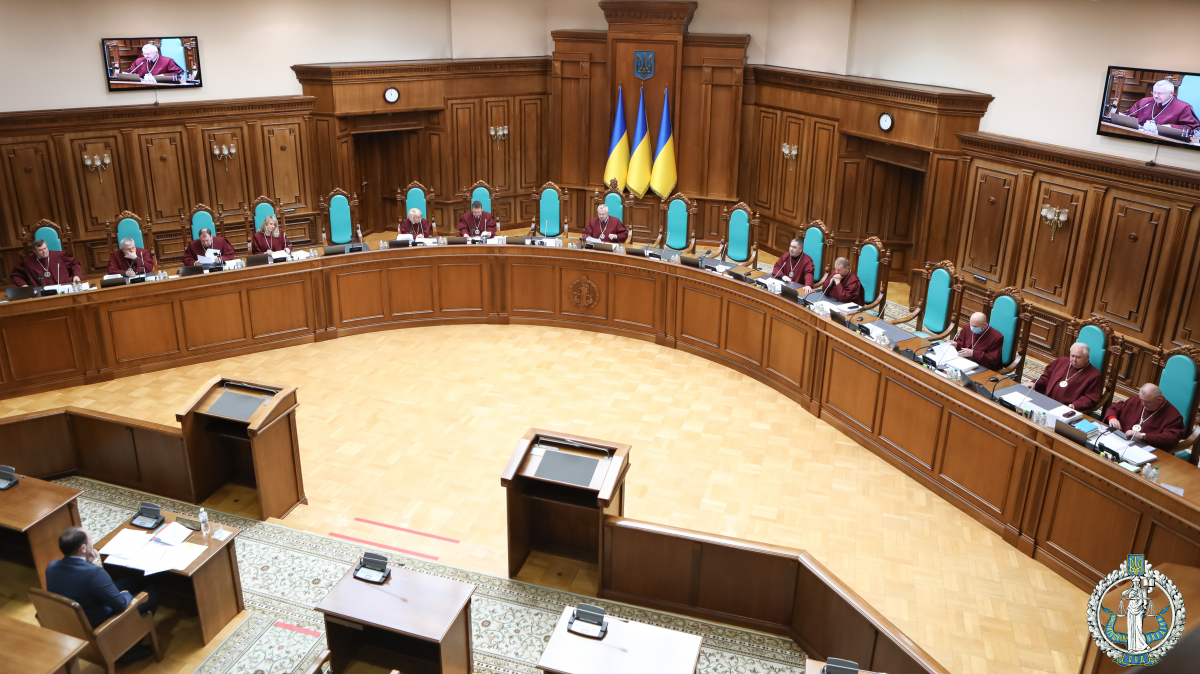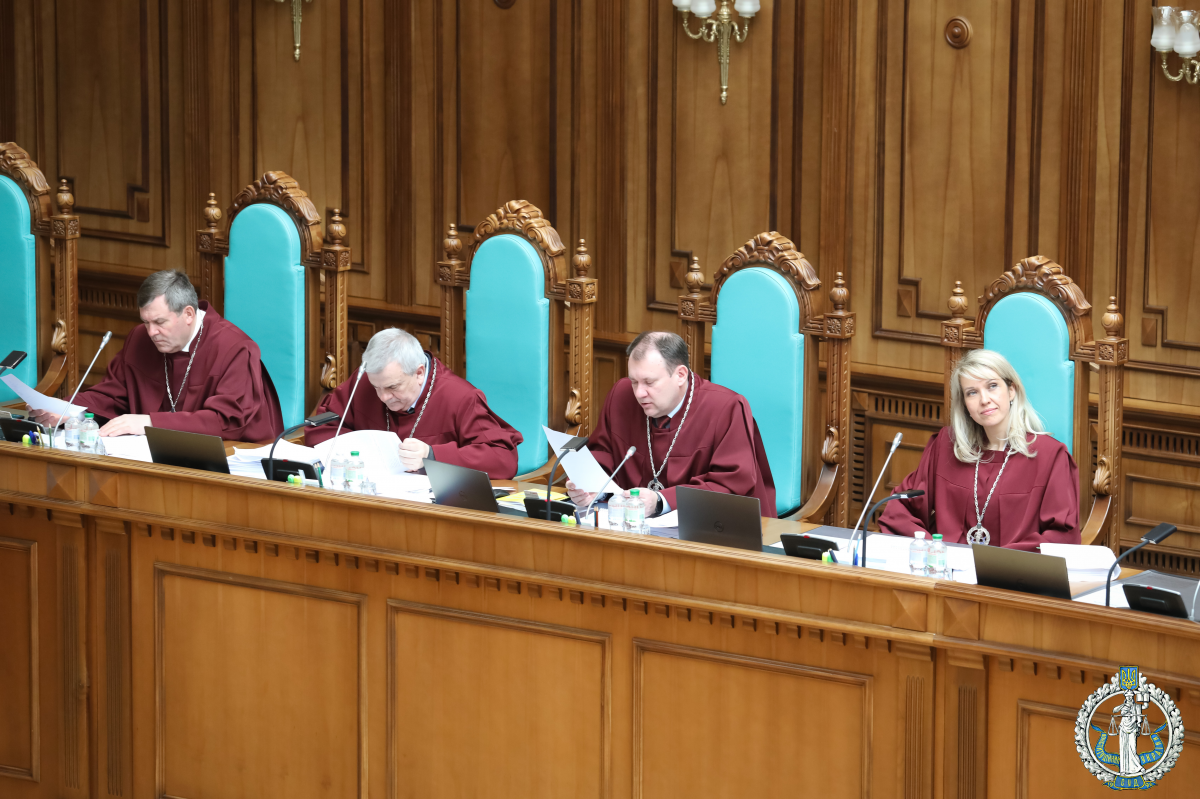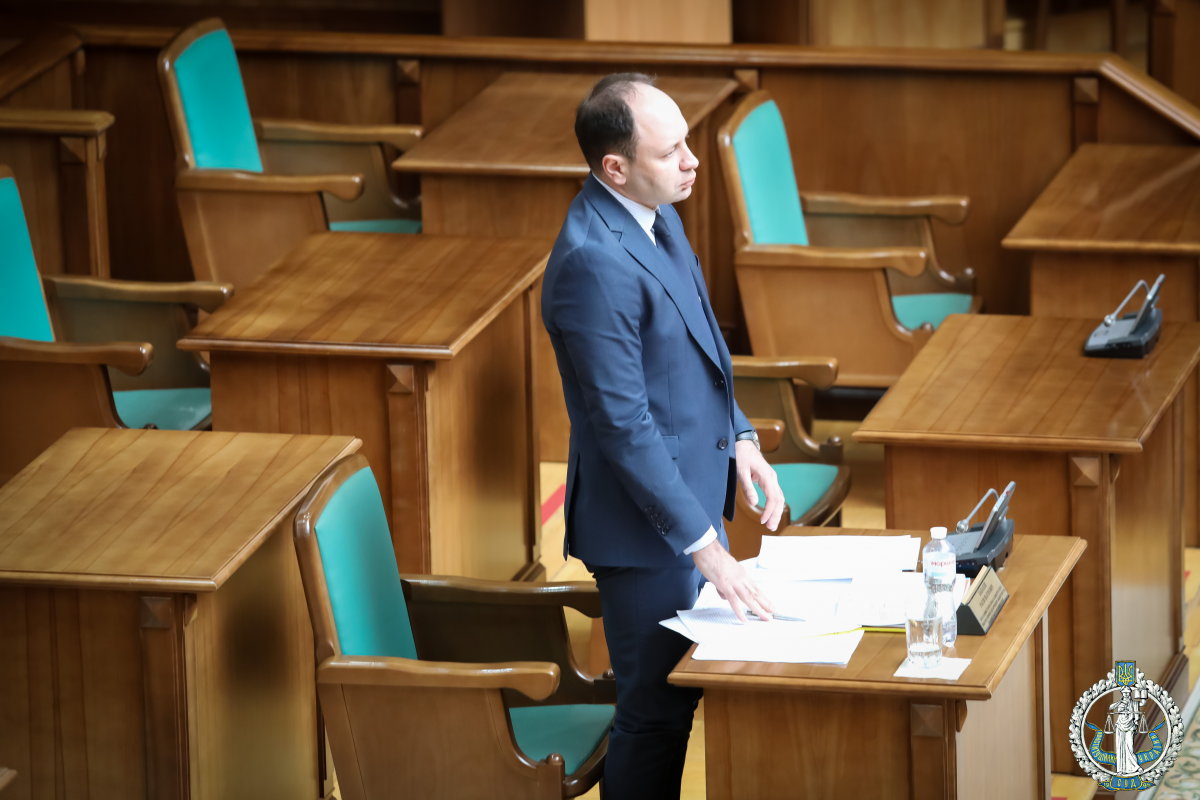On Tuesday, April 11, 2023, the Grand Chamber of the Constitutional Court of Ukraine, in the public part of the plenary session, in the form of written proceedings deliberated the case upon the constitutional petition of the Supreme Court regarding the constitutionality of Article 34.1.11, paragraph 10-1 of Section XIII “Final and Transitional Provisions” of the Law of Ukraine “On Executive Proceedings” dated June 2, 2016 No. 1404-VIII, paragraphs 5-1, 5-2 of Section III “Transitional and Final Provisions” of the Law of Ukraine “On Peculiarities of the Formation of a Public Railway Transport Joint Stock Company” dated February 23, 2012 No. 4442-VI (hereinafter referred to as “Law No. 4442”).
During the plenary session, the judge-rapporteur in the case, Oleh Pervomaiskyi, informed on the content of the constitutional petition and the grounds for initiating proceedings in the case.
He pointed out that the Supreme Court appealed to the Constitutional Court of Ukraine to examine the conformity of the contested provisions of the Laws Nos. 1404 and 4442 with the Constitution of Ukraine (constitutionality).
As noted by the judge-reporter, the Supreme Court in the constitutional petition asserts that the contested provisions of the Laws Nos. 1404 and 4442 lead to a long-term “effect of the moratorium”, the lack of legal certainty regarding the occurrence of events that are associated with the moratorium's loss of validity, and expresses “doubts about the existence of a legitimate aim of such a moratorium”. According to the subject of the right to constitutional petition, the disputed provisions do not correspond to Article 8, Article 19.2, Article 55.1, Article 55.2, Article 129.2.9, Article 129-1.1 and Article 129-1.2 of the Constitution of Ukraine.
The judge also informed that in order to ensure a full and objective review, he sent requests to state authorities, a number of scientific institutions, a member of the Scientific Advisory Council of the Court to deliver opinions on the issues raised in the constitutional petition.
The Grand Chamber of the Court examined the case materials in the public part of the plenary session and proceeded to the in-camera part for a decision.
Rasim Babanly, a representative of the subject of the right to constitutional petition, attended the public part of the plenary session.
Video recording of the public part of the plenary session is available at https://bit.ly/3zOhLcV.




